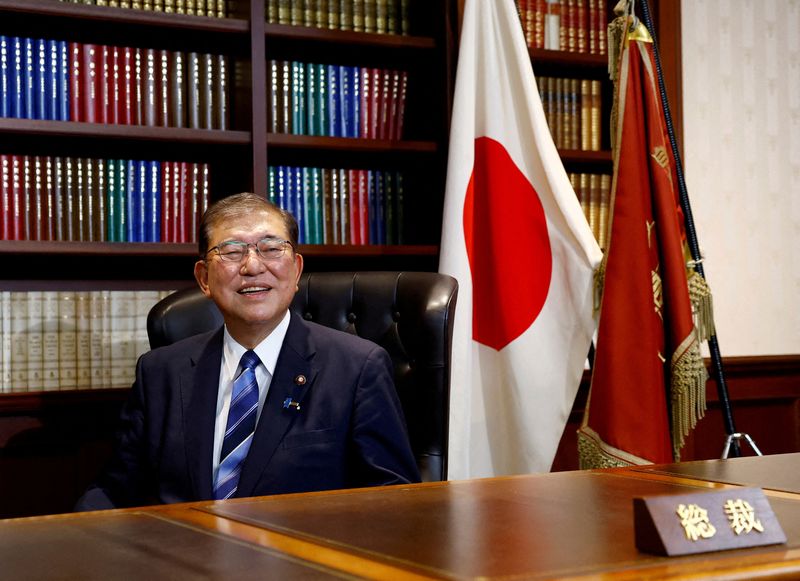By Leika Kihara
TOKYO (Reuters) -Japan's incoming prime minister, Shigeru Ishiba, said on Sunday the country's monetary policy must remain accommodative as a trend, signalling the need to keep borrowing costs low to underpin a fragile economic recovery.
It was not immediately clear whether Ishiba, who had been a vocal critic of the Bank of Japan's past aggressive monetary easing, was taking a more dovish line with his remarks.
"It's something the Bank of Japan, which is mandated to achieve price stability, will decide while working closely with the government," Ishiba told public broadcaster NHK, when asked about further interest rate increases by the central bank.
"From the government's standpoint, monetary policy must remain accommodative as a trend given current economic conditions," he said.
On fiscal policy, Ishiba said he will aim to compile a package of measures at an early date to cushion the economic blow from rising living costs, with a focus on helping low-income households.
Ishiba, a former defence minister, is set to become prime minister on Tuesday after winning the presidency of the ruling Liberal Democratic Party on Friday.
After his victory, Ishiba said monetary policy would broadly remain loose but suggested he would not push back against further increases in still near-zero interest rates.
The BOJ ended negative interest rates in March and raised short-term borrowing costs to 0.25% in July in a landmark shift away from a decade-long, radical stimulus programme.
BOJ Governor Kazuo Ueda has signalled a readiness to raise rates further if Japan makes progress towards durably achieving the bank's inflation 2% target, as the board projects it will.

Ishiba told Reuters in August that the BOJ was on the "right policy track" by ending negative rates and endorsed further normalisation of monetary policy, saying it could boost industrial competitiveness. But in an interview this month, he said Japan must prioritise making a full exit from deflation and warned of weak signs in consumption.
The yen, which fell on Friday on news that a dovish rival would join Ishiba in a run-off for the LDP leadership, rebounded on his victory.